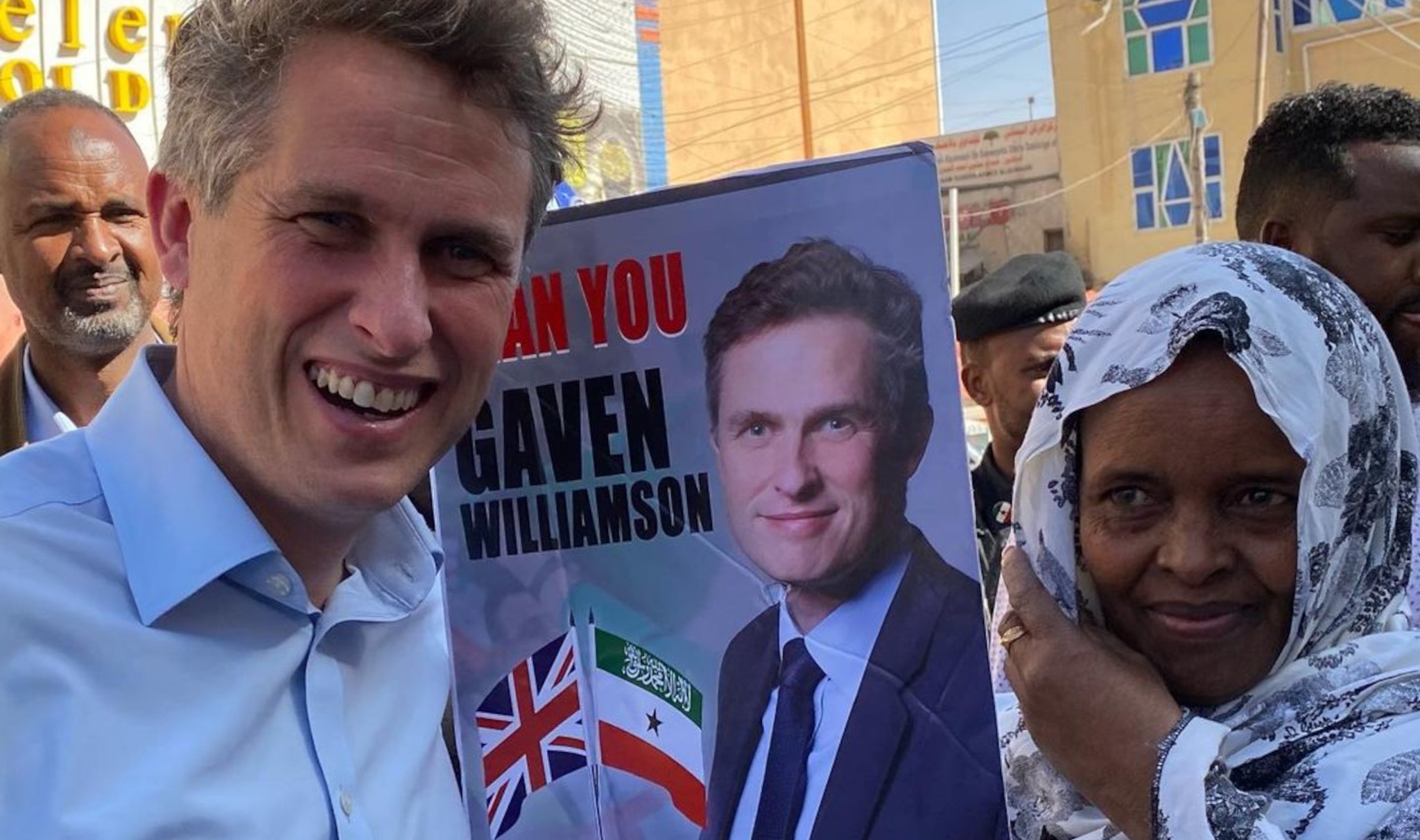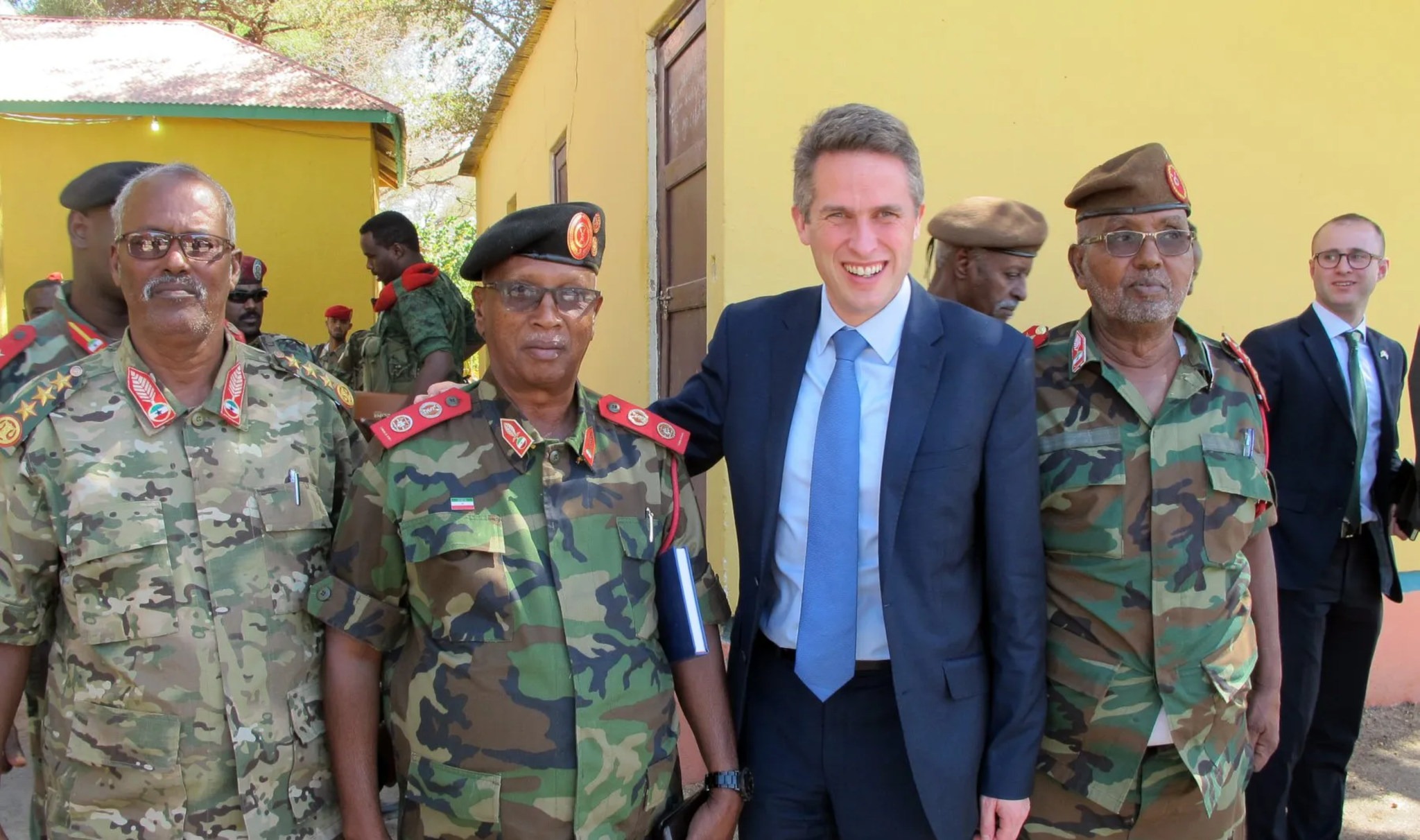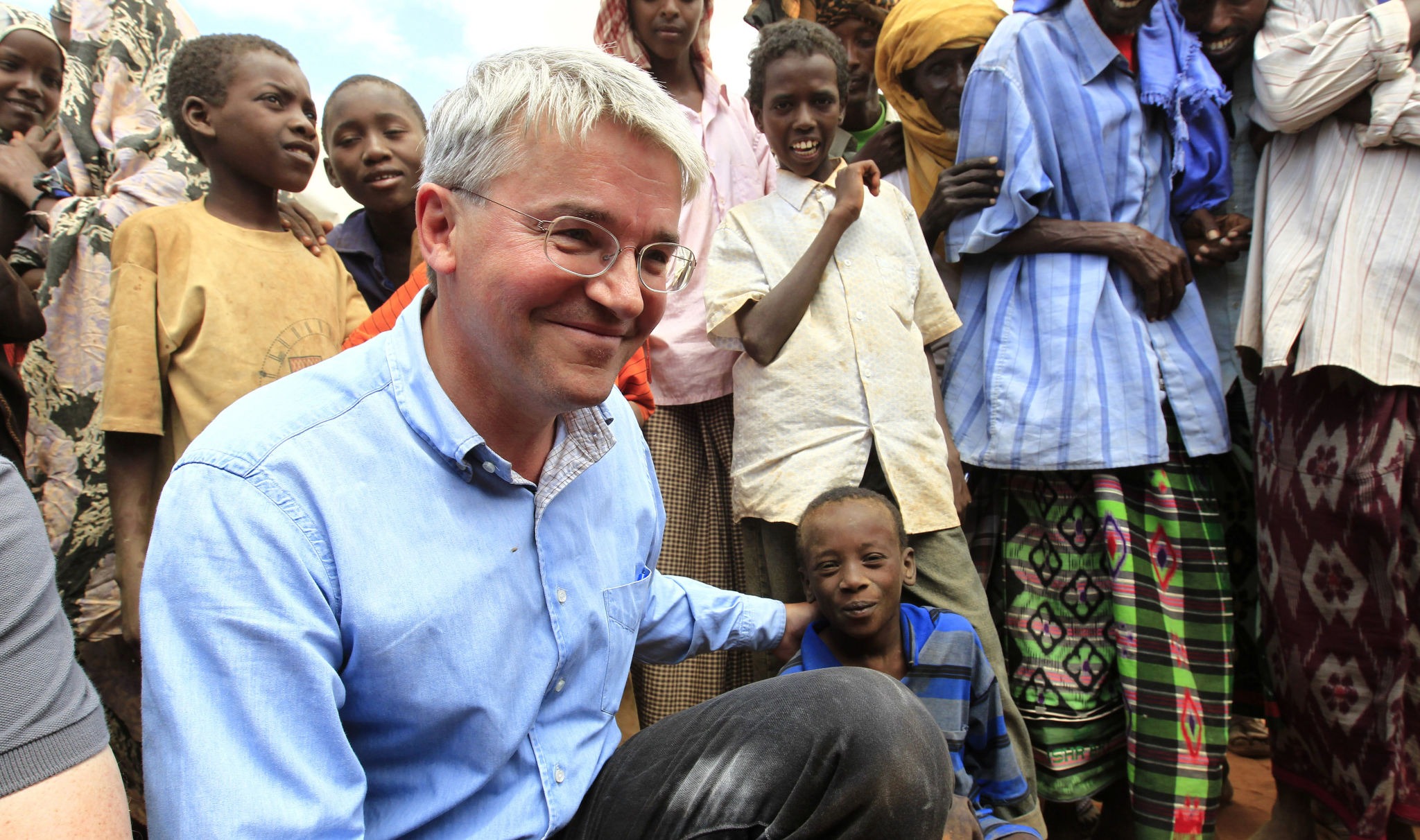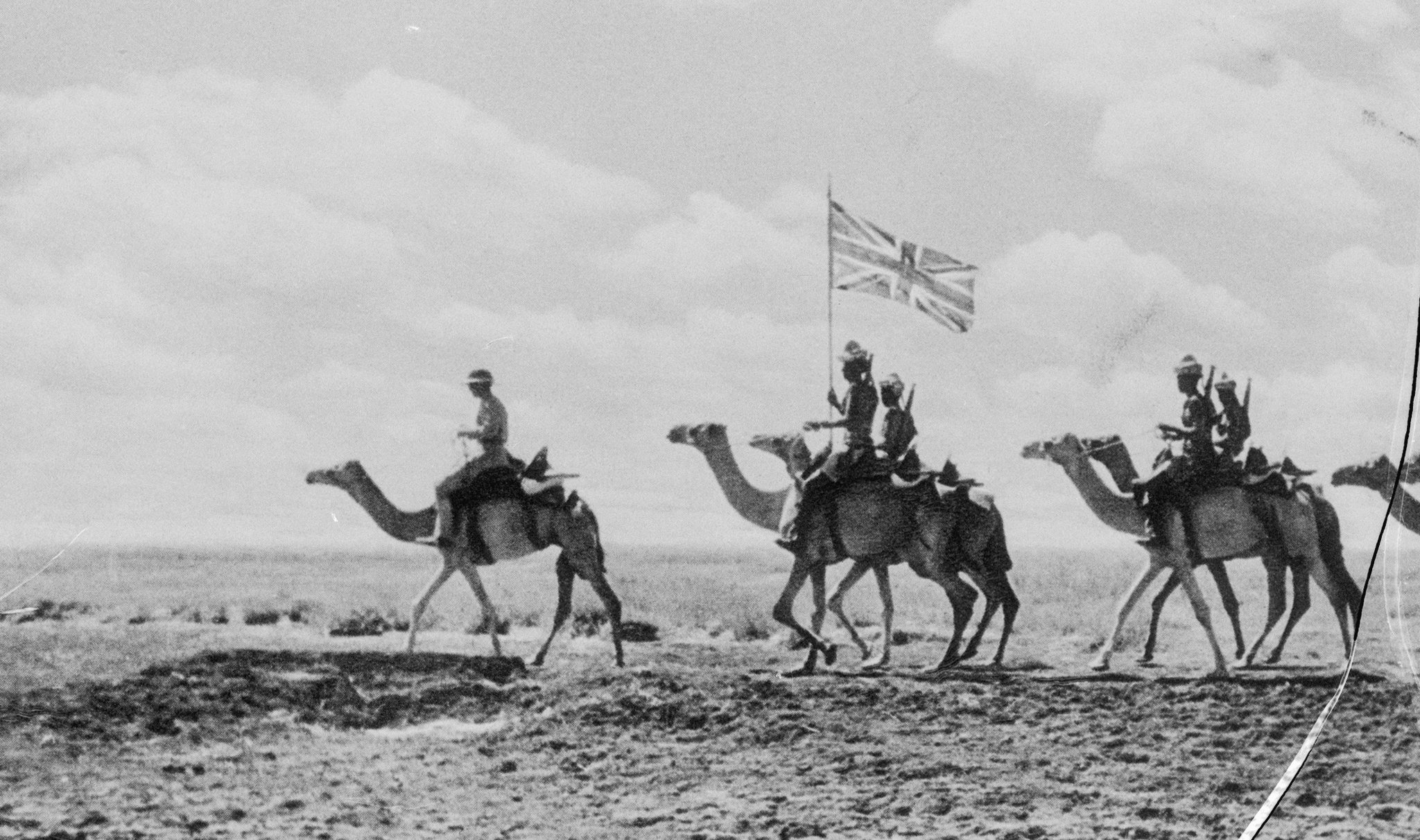On July 24th, Doctors Without Borders announced it had “reached the difficult decision to withdraw” from the main hospital in Las Anod, a war-torn city in the Horn of Africa claimed by both Somalia and Somaliland.
The charity said “the level of extreme violence in Las Anod” and “recurrent attacks on medical facilities” had forced its healthcare workers to pull out.
Earlier that month, the hospital had been hit for the fifth time this year, injuring staff, damaging an ambulance and shuttering the maternity ward.
Amnesty International has blamed such attacks on Somaliland’s army, which is said to have “indiscriminately shelled” the city.
And yet these apparent violations of humanitarian law did not deter a British MP from flying to Somaliland a week later on an all-expenses-paid trip in support of their government.
The politician in question, Sir Gavin Williamson, represents South Staffordshire – a rural constituency 4,000 miles away on the outskirts of Birmingham.
Since being kicked out of Cabinet for leaking intelligence, he has become a regular guest of Somaliland and holds honorary citizenship.
Last month their Chamber of Commerce spent £3,100 on his flights, food and accommodation for a week-long “trade and political visit to discuss environmental issues and deepening relations between educational institutions”.
SSC-Khaatumo, the pro-Somalia group that wrested control of Las Anod from Somaliland’s authorities, has condemned Williamson’s trip.
Their spokesman, Mohamed Kaffi, told Declassified: “It is morally reprehensible for a British MP to campaign for a murderous Somaliland regime while it was committing atrocities in Las Anod, causing the displacement of hundreds of thousands, killing hundreds, and the destruction of civilian infrastructure, including water treatment facilities, power plants, schools, hospitals, and mosques—all of which are tantamount to crimes against humanity.”
It is not the first time Williamson has visited Somaliland. Their chamber of commerce paid £4,600 for him to make a similar trip in 2022, according to the MP’s register of interests. Somaliland has even held a “Gavin Williamson Appreciation Day”.
Williamson first went there in 2019 when he was defence secretary and met Somaliland’s top army general. He was accompanied by Sir Mark Carleton-Smith, the then head of the British army and former commander of UK special forces.
That trip won praise from Nimco Ali, a British Somaliland activist who is godmother of Boris Johnson’s son Wilfred. She said Williamson’s 2019 visit made her “weep with joy”.
‘Care passionately’
Like the rest of the world, Britain does not officially recognise Somaliland, which unilaterally declared independence from Somalia in 1991. But it has provided training and equipment for their security forces – including some units implicated in killing civilians in Las Anod.
That city is populated by the Dhulbahante clan which rose up against Somaliland authorities in December. The rebel movement, known as SSC-Khaatumo, wants to re-join Somalia.
What began as peaceful protests quickly escalated into all out conflict after demonstrators were shot dead. Somaliland forces then shelled the city from the surrounding hills, while the SSC controlled urban areas including the hospital.
This conflict was potentially awkward for Williamson, who is vice-chair of the All Party Parliamentary Group on Somaliland and has tabled a motion and debate in the House of Commons calling for its recognition.
“This conflict was potentially awkward for Williamson, who is vice-chair of the All Party Parliamentary Group on Somaliland”
He told parliament: “Somaliland has been an amazing, shining beacon of everything we want to see flourish in Africa.” Williamson described it as a “welcoming and a safe place for people to visit”, in contrast to Somalia which is dogged by terrorism from Al-Shabab.
And like many others, he made a moral argument for Somaliland’s independence, citing the genocide committed against its largest clan, the Isaaq, in the late 1980s by Somalia’s then dictator Siad Barre.
The uprising in Las Anod complicates these narratives. Somaliland troops now seemed to be killing their own people, many of whom belonged to minority clans that resented living under an Isaaq-dominated polity.
Williamson has responded by ignoring the conflict and doubling down on his support for authorities in its capital Hargeisa, who label the SSC as terrorists.
In a rousing speech last month, he told politicians there: “I accept that I may not have been born in this country but I care passionately about this country… And while ever there is a breath in my body and blood flows through my veins, I will always be a champion.
“I will always fight for what is right for this country, because actually recognition is not just right for this country, it is also right for the world.”
Oil and water
Williamson’s interest in the issue might not be purely political. He also met with Somaliland’s energy minister, who praised his “continuous support for Somaliland’s international recognition.”
This meeting is significant because a British company, Genel Energy, is actively prospecting for over two billion barrels of oil in Somaliland, which Somalia says is in violation of its sovereignty. Drilling is planned to begin in 2024 and Genel has a 51% working interest in the block.
Genel Energy is well connected to the Conservative Party, with ex-energy and defence minister Michael Fallon as its deputy chairman. Former shareholders include disgraced chancellor Nadhim Zahawi.
The company does not appear put off by recent fighting, despite its exploration block running partly into the Sool region, of which Las Anod is the administrative capital. (The rebel group, SSC-Khaatumo, takes its name from the Sool, Sanang and Cayn regions which it seeks to control).
Instead corporate documents describe an “exciting period for Genel” in Somaliland where it will “ramp up” its activities, both commercially and socially.
Oil drilling notoriously uses large quantities of water, and Genel is aware that “throughout 2022 areas of Somaliland were subject to drought conditions which were subsequently identified as at risk of famine”.
The company claims it spent half a million dollars on drought relief, distributing water in 99 villages and delivering food to thousands of households.
Paul Weir, Genel’s chief executive, has said: “The Somaliland opportunity is frontier exploration, with all of the challenges that entails, but rare in terms of scale and potential.
“In a success case, there is a clear route to market through existing port facilities and this opens up the tantalising prospect of creating shareholder value in a region where our activities can also have a hugely positive impact on the surrounding society.”
The port he is referring to is Berbera, which received up to £232m of UK investment when Liz Truss was foreign secretary in 2021. Williamson has visited the port, which is operated by DP World – a company in Dubai with close links to the Conservative Party.
SSC advance
Despite the prospects of oil wealth and a thriving port, the conflict in Las Anod does present a real challenge. Last month, the SSC drove Somaliland forces away from the city, capturing military bases and even a general.
The scale of the SSC’s advance became clear when the International Red Cross said it had visited 300 combatants detained in Las Anod. As a result, a sizable chunk of territory within the borders Somaliland wants recognised now lies beyond its effective control.
Those borders come from its days as a British colony, which some Somaliland activists romanticise in the hope of attracting Conservatives to their cause. In the last five years, two other Conservative MPs went on trips to Somaliland paid-for by its agencies.
Support in Westminster is not confined to the Tories. In 2018, Labour’s Liz McInnes made a visit that was paid for by Somaliland. And her colleague Rushanara Ali visited this summer in a trip that partly overlapped with Williamson. (Ali’s travel was funded by the HALO Trust, a demining charity, and also included time in Ethiopia).
The UK Somaliland Alliance, a lobby group which held an event in Westminster for MPs this June, told Declassified that political engagement was necessary to prevent a repeat of the Isaaq genocide.
Their spokeswoman, Zainab Ibrahim, commented: “The conflict in Las Anod is a result of the international community’s intransigence, and its wish to maintain the status quo. Even though the status quo is clearly, evidently, unequivocally, broken and non-recognition of Somaliland is prolonging mass suffering of millions of people through deliberate underdevelopment, inability to trade with the world, inability to travel or have relations with the world.
“This creates an unhealthy competition for scarce resources in an unrecognised country. The war in Las Anod is therefore one of the produces [sic] of non-recognition of Somaliland. Unless there is a clear resolution, which can only mean recognition of Somaliland, there is a heightened risk of conflict. Recognising Somaliland would bring certainty, rule of law and stability.”
Sir Gavin Williamson did not respond to a request for comment.





